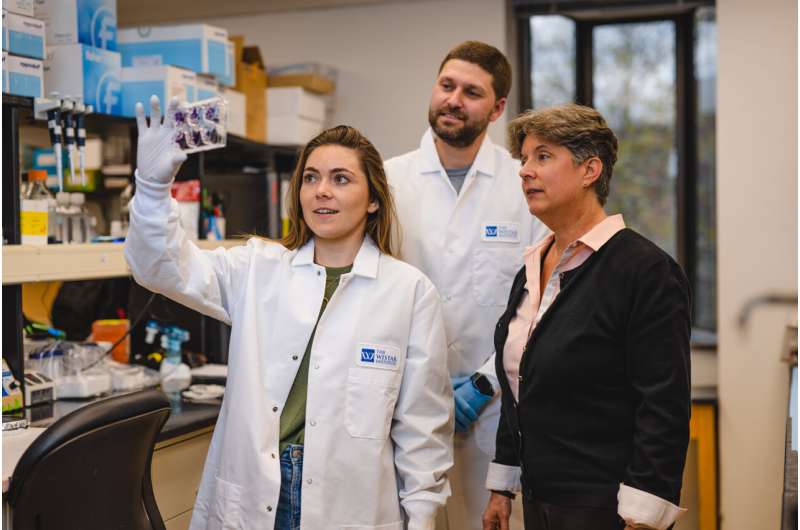This article has been reviewed according to Science X's editorial process and policies. Editors have highlighted the following attributes while ensuring the content's credibility:
fact-checked
peer-reviewed publication
trusted source
proofread
Scientists identify a gene signature to assess cancer risk in people

In a paper published in PNAS, Maureen Murphy, Ph.D., Deputy Director of Wistar's Ellen and Ronald Caplan Cancer Center and Ira Brind Professor and Program Leader in the Molecular & Cellular Oncogenesis Program, and team have identified a gene signature that accurately predicts the functioning of P53 variants, important information to assessing cancer risk and optimizing choices for cancer therapeutics.
"There are so many genetic variants of P53," explained Murphy. "A lot of P53 variants are classified as having uncertain significance with current methods of testing. This does not help people determine whether they have increased cancer risk. The signature we identified does."
The Murphy lab monitored differences in activity in mutant and normal p53 proteins to determine any genetic markers that would flag if a p53 variant is functioning less than normal. In collaboration with Andrew Kossenkov, Ph.D., assistant professor in Wistar's Vaccine and Immunotherapy Center, the research team used machine learning to identify a gene signature that consistently and accurately predicted the difference between a normal functioning or benign p53 and a lower functioning variant of the protein.
This knowledge could be used to screen individuals with genetic variants of p53 and better inform them of their cancer risk and response to therapy. Murphy intends to continue this work with the goal of turning the gene signature into a blood-based genetic test someone could take to learn about their p53 status.
"The promise of this research is personalized medicine," Murphy elaborated. "This work could not have happened in any other place except Wistar where our environment is so collaborative and cutting edge."
More information: Common activities and predictive gene signature identified for genetic hypomorphs of TP53, Proceedings of the National Academy of Sciences (2023). www.pnas.org/doi/abs/10.1073/pnas.2212940120

















